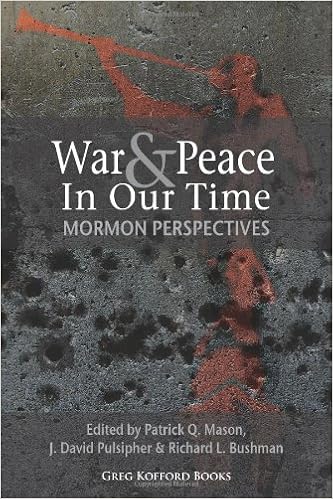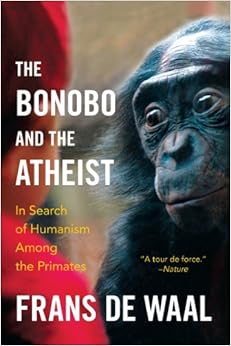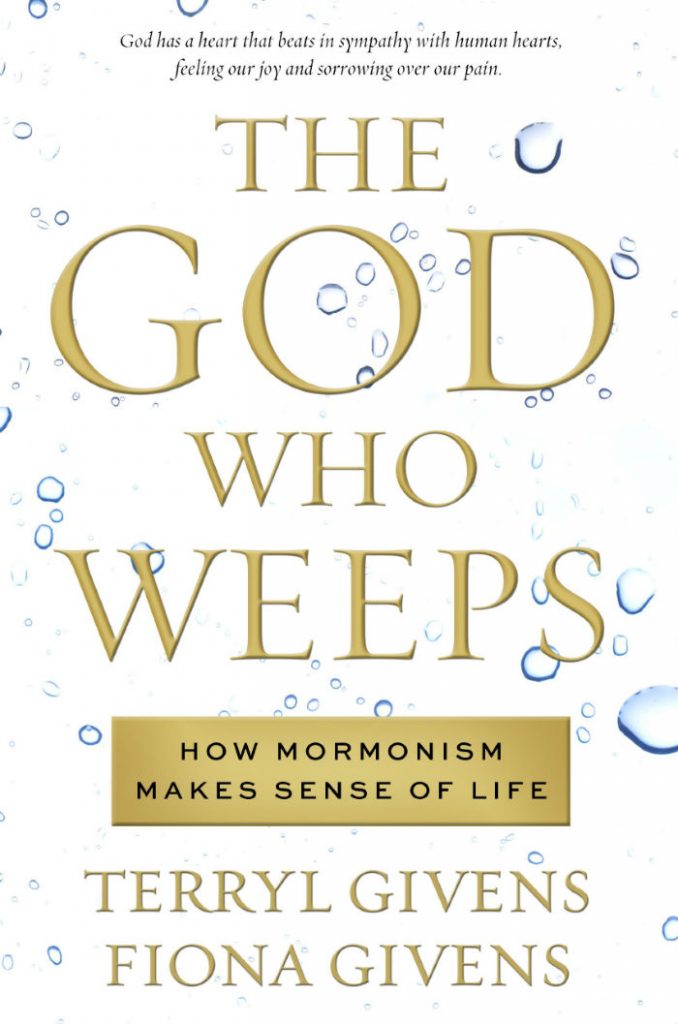This is part of the General Conference Odyssey.
 I’ve been slowly working through a couple books on scripture, theology, and peace with the hope that the insights gleaned from them will blossom into a future publication. One book focuses on the New Testament, while the other relies specifically on Mormon scripture and tradition: Covenant of Peace: The Missing Peace in New Testament Theology and Ethics and War & Peace in Our Time: Mormon Perspectives. New Testament scholar and Covenant of Peace author Willard Swartley argues that the themes of kingdom of God, gospel, and peace are interwoven throughout the New Testament. In summary, he finds:
I’ve been slowly working through a couple books on scripture, theology, and peace with the hope that the insights gleaned from them will blossom into a future publication. One book focuses on the New Testament, while the other relies specifically on Mormon scripture and tradition: Covenant of Peace: The Missing Peace in New Testament Theology and Ethics and War & Peace in Our Time: Mormon Perspectives. New Testament scholar and Covenant of Peace author Willard Swartley argues that the themes of kingdom of God, gospel, and peace are interwoven throughout the New Testament. In summary, he finds:
-
The over-arching emphasis of Scripture presents God as Peacemaker who is also the Divine Warrior fighting against evil to establish and maintain peace and justice. God’s people are called to trust in God for the divine victory, and are not to take vengeance and judgment into their own hands…
-
Jesus comes as divine warrior to overcome and defeat the powers of evil…Exorcisms and healings play a major role in his ministry, to announce the breaking in of God’s reign.
-
In Jesus’ combat against and the victory over evil, his disciples are called not to fear, but to believe, have faith…
-
Jesus refuses easy identification with Jewish expectations of the Messiah (Mark 8:29-33) because those hopes violated God’s way for the victory to be won. Jesus denounces the domination system with its redeemer myth that lives by violence. Instead, Jesus identifies himself with the Danielic “Son of humanity” and indirectly with the Isaiah “servant” traditions, in which victory comes through suffering. Jesus’ entry into Jerusalem on a donkey shows him as king of peace, based on humility and trust in God.
-
Jesus includes “the enemy” in his circle of ministry: the marginalized Jews, the Samaritans, and the Gentiles. This incarnates his teaching: “Blessed are the peacemakers, for they shall be called the children of God.” Love of the enemy and nonretaliation are cardinal teachings of the gospel. So also is confrontation of and expulsion of demonic spirits–God’s kingdom against Satan’s kingdom…
-
Luke provides us with twin themes in his travel narrative in which peace and justice are Jesus’ gifts through his ministry, on the one hand, and presuppose, on the other, this onslaught against and victory over Satan and the demonic powers…
-
The Pauline teaching on the powers is a gospel proclamation of the theological meaning of Jesus’ ministry…[Walter] Wink is correct that the method of Christ’s defeat of the powers is the nonviolence of the cross…[ref]Willard M. Swartley, Covenant of Peace: The Missing Peace in New Testament Theology and Ethics (Grand Rapid: Eerdmans, 2006), 51-52.[/ref]
 In his essay “A Non-Violent Reading of the Book of Mormon,” Joshua Madson writes,
In his essay “A Non-Violent Reading of the Book of Mormon,” Joshua Madson writes,
A rough outline of the Book of Mormon history would consist of the following acts: (1) Creation of Lehites, (2) Fall of Lehites and their division, (3) Nephite and Lamanite conflict, (4) Jesus and Zion, (5) Apocalypse. These acts form parts of a larger narrative–and although there are “multiple smaller narratives, some of them pulling this way and that within the larger one, sometimes even seemingly in opposite directions” within this grand narrative, this is to be expected and only a problem if we shrink the grand narrative from its full implications. Therefore, justifications for violence taken from teachings and actions in the third act of the Book of Mormon should not trump the corrective teachings of Jesus in Act 4 and the results of continuing to live as if he never came in Act 5. It is not to Captain Moroni, for example, that we should look for our views on war but to the larger narrative and subsequent acts, especially as they resolve or explain the problem of violence…When read in this manner, the Book of Mormon presents a strong critique of violence as a solution to conflict. It presents us with a thousand-year case study and addresses the question: how should we respond to our enemies? Ultimately it presents us with two options: we can either imitate Christ in loving our enemies and seek at-one-ment with them, or we can resort to violence, which leads to individual and communal annihilation.[ref]Madson, “A Non-Violent Reading of the Book of Mormon,” in War & Peace in Our Time: Mormon Perspectives, ed. Patrick Q. Mason, J. David Pulsipher, Richard L. Bushman (Salt Lake City: Greg Kofford Books, 2012), 15-16.[/ref]
I was reminded of these books when I read the talks by Eldred G. Smith and John H. Vandenberg in the April 1972 Conference. Mining through several quotations of Jesus, Elder Smith states,
How is it that we have not discovered the secret of peace when we have been looking for it all through the ages? I’ll tell you. We are looking for someone to create it for us—to bring it to us. Edna St. Vincent Millay said: “There is no peace on earth today, save the peace in the heart at home with God. … No man can be at peace with his neighbor who is not at peace with himself. …” (“Conversations at Midnight,” Collected Poems, Harper & Row, Copyright 1937 and 1964.)
Have you experienced that peace within you because you helped your neighbor rake his lawn or mow his lawn? Have you felt that peace within because you helped your neighbor pick his fruit or harvest his crops? Have you witnessed that peace within because you shoveled the snow off your neighbor’s walks? Have you felt that peace which came because you helped someone solve a problem and get a new lease on life? Have you “cheered up the sad, and made someone feel glad”?
His point?:
A key to peace, then, is service. Christ said: “But he that is greatest among you shall be your servant.” (Matt. 23:11.)…The Lord has said: “For behold, this is my work and my glory—to bring to pass the immortality and eternal life of man.” (Moses 1:39.) Is this not the ultimate of service? To become as God is, then, we must eliminate enmity, greed, and selfishness, and all our efforts must be in service to others. The Lord said: “… he who doeth the works of righteousness shall receive his reward, even peace in this world, and eternal life in the world to come.” (D&C 59:23.)
He concludes:
If each person would have peace within his soul, then there would be peace in the family. If there is peace in each family, then there is peace in the nation. If there is peace in the nations, there is peace in the world. Let us not just sing, “Let there be peace on earth and let it begin with me,” but let us mean it. Make it my goal—your goal. When the Savior comes again—and he will come—he will bring peace only as we will accept and follow his teachings of service to others and eliminate enmity and unrighteousness…His kingdom is already here on earth and is growing rapidly to prepare for his coming. Yes, he shall surely come and bring peace to the earth, but only as we are willing to follow his teachings. This is his work, and his kingdom, which is the only way to world peace and eternal peace.
Elder Vandenberg in turn teaches that “paths of avarice, ambition, envy, anger, and pride” lead us away from peace. “Surely the greatest enemy of peace is selfishness and with it the desire to pile up treasures on earth.” Sadly, “an encyclopedia shows that during the period from 1496 B.C. to A.D. 1861 there were 227 years of peace compared with 3,130 years of war. Ambition, either privately or collectively, gives little hope for the achievement of peace.” Yet, Vandenberg has little faith in achieving peace by “making a sign or by writing words on fences. It must come first and most completely to the individual through his own efforts in keeping the commandments of our Lord and Savior, for God made all men to enjoy such peace.” Drawing on 4 Nephi (part of Act 4 mentioned above), he finds that “there is no quicker way to enjoy inner peace than by serving one another.” The Nephite Zion society was “a marvelous period of time when this peace did indeed banish avarice, ambition, envy, anger, and pride from men’s hearts.”
Peace begins with us. And it comes from imitating Christ.
Other Noteworthy Quotes & Insights
Bernard P. Brockbank:
Knowing God does not solve life’s problems, but gives purpose and strength to master them. Jesus, with his knowledge of his Heavenly Father, still had his problems to meet and to work out.
Sterling W. Sill:
He recognizes the importance of reading and intellectual stimulation:
Over the door of the library in the ancient city of Thebes, an Egyptian king once carved an inscription that said: “Medicine for the Soul.” Like all thoughtful people, this wise ruler understood that if the mental, spiritual, and emotional health of his people was to be properly cared for, it must be constantly nourished. And because ideas, ideals, and ambitions can be most effectively supplied through books, this great king had provided an ample literary storehouse as a place where his people could get the necessary help for thinking good ideas, building up proper attitudes, vitalizing their faith, motivating their ambitions, and increasing their righteousness, that they might help themselves to save their souls…One of the most effective cures for all of our present-day problems is found in the literary remedy that comes from thinking uplifting thoughts and living the great principles of the gospel. The science of writing has probably made books our greatest invention. Writing is preserved speech; it is potential ambition. By effective study we can acquire knowledge, build faith, and develop an enthusiasm that will lead us to any desired accomplishment…Someone has pointed out that books are among life’s most precious possessions. They are the most remarkable creation of man. Nothing else that man builds ever lasts. Monuments fall, civilizations perish, but books continue. The perusal of a great book is as it were an interview with the noblest men of past ages who have written it.
Of course, this includes the scriptures:
Our present state of malnutrition is not because of any famine for bread nor a thirst for water, but it is for the hearing and the obeying of the word of the Lord. That is, our many soul-deaths do not occur because a remedy is not available; it is only because we are failing to take that medicine which has already been provided and has already proven its effectiveness…Our present most urgent needs are that we should read more and understand more and think more and do more and be more and live more. Jesus emphasized his own mission by saying, “I am come that they might have life, and that they might have it more abundantly.” (John 10:10.) We must not allow the holy scriptures to sit on our shelves unopened while we continue to starve to death spiritually because we fail to practice those great success laws on which the eternal exaltation of our souls depends.
In The Happiness Hypothesis, social psychologist Jonathan Haidt writes,
 I’ve been slowly working through a couple books on scripture, theology, and peace with the hope that the insights gleaned from them will blossom into a future publication. One book focuses on the New Testament, while the other relies specifically on Mormon scripture and tradition:
I’ve been slowly working through a couple books on scripture, theology, and peace with the hope that the insights gleaned from them will blossom into a future publication. One book focuses on the New Testament, while the other relies specifically on Mormon scripture and tradition:  In his essay “A Non-Violent Reading of the Book of Mormon,” Joshua Madson writes,
In his essay “A Non-Violent Reading of the Book of Mormon,” Joshua Madson writes,
 I was at the zoo recently with my wife, my sister-in-law, her husband, and their baby. As we looked at the bonobos and observed their eerily human behavior, I made the comment that I needed to read primatologist Frans de Waal’s book
I was at the zoo recently with my wife, my sister-in-law, her husband, and their baby. As we looked at the bonobos and observed their eerily human behavior, I made the comment that I needed to read primatologist Frans de Waal’s book 

 In her
In her 
